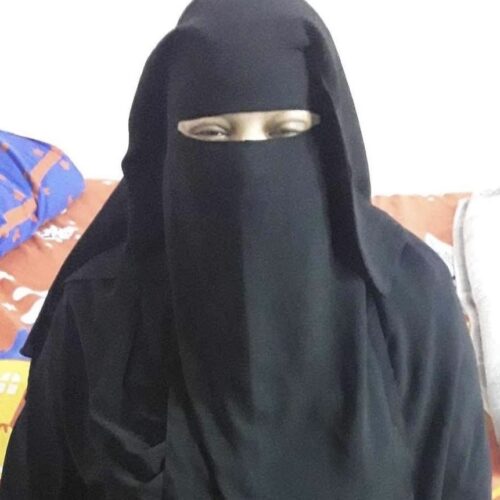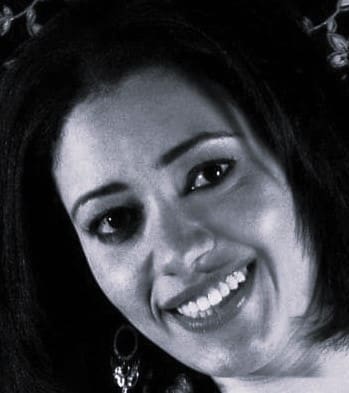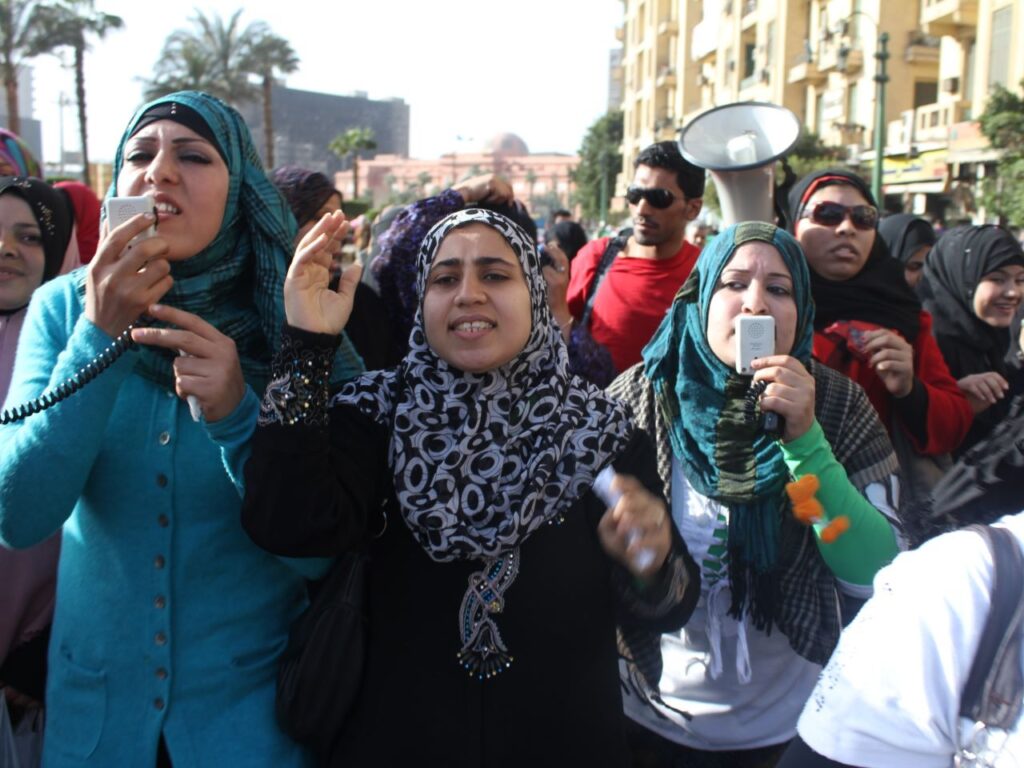Doctor sexually abused sick woman in Egypt in front of her daughter, there is no justice
Immediately, I moved away from the examination table and looked at the doctor, only to find him agitated and profusely sweating. Upon hearing the cries of my daughter, I snapped out of my shock. The awful act traumatized us both.
- 5 months ago
February 14, 2024

Trigger Warning: The following story contains a graphic description of sexual abuse and may not be suitable for some readers.
EGYPT ꟷ Three years ago, I became infected with the coronavirus, and it significantly disrupted my immune system. I developed a condition affecting my nerves, making it impossible to feel burns or fractures. It also left me partially paralyzed. Some doctors diagnosed it as Guillain-Barré syndrome while others say I suffer from inflammation of the nerves and peripheral nerves.
Since the beginning of my illness, I visited many doctors who seemed puzzled. One even prescribed chemotherapy and diagnosed me with multiple sclerosis. Amidst all of the confusion and chaos, one doctor visit remains etched in my memory as one of the most difficult days of my entire life.
On that fateful, painful day, my doctor performed an unnecessary and sexually abusive gynecological exam on me in front of my 13-year-old daughter. Not only has my daughter’s psychological state deteriorated, but as a medically disabled woman, this experience worsened the challenges I already face in my daily life. I never deserved such treatment, and I have no justice.
Medical doctor sexually abuses woman in front of her 13-year-old daughter
My husband accompanied me on the first day I went to the doctor, who told me I needed to undergo clinical and neurological examinations and prescribed chemotherapy injections. During my last chemotherapy session, the nurse advised me to return to the doctor who prescribed the treatment.
She explained that prolonged chemotherapy will not be beneficial. Following her advice, I visited the doctor’s private clinic for the second time. This time, I went with my 13-year-old daughter. I needed his advice on discontinuing my chemotherapy injections.
The examination conducted during the visit differed vastly from the neurological examinations that I was familiar with the past three years. It felt more like a gynecological examination. Because of my inability to feel any sensations, I felt nothing at the beginning.
Placing me on the examination table with my back to him and my face towards my daughter, he asked me about my condition. Engrossed in my response, he took advantage of the situation. He placed his hand on my genitals and into my anal opening. He also placed his hand on my breasts. His actions became clear to me when the behavior intensified.
Every woman can distinguish between a doctor’s touch during an examination and that of abuse. Immediately, I moved away from the examination table and looked at the doctor, only to find him agitated and profusely sweating. Upon hearing the cries of my daughter, I snapped out of my shock. The awful act traumatized us both.
Read more stories from the Sex & Gender category at Orato World Media.
Professionals at every level advise victim to remain silent
Afraid to confront the doctor and create a scene that would affect my daughter, I remained calm and silent. When we left the clinic and entered the elevator, she said to me, “Let’s go back in and cause a scene.” I told her that it wouldn’t help, especially since she had come along with me. Yet, I was unable take her home and return alone due to my weakened mobility.
Soon after, I narrated the incident to my husband, and he, in turn, went to one of the doctors who followed my case. My husband enquired whether the neurological exam I underwent required that sort of gynecological invasion. The doctor said no.
My husband spoke to the doctor who examined me over the phone. The doctor responded, “My son, I do not engage in such behavior. I am 70 years old and last year I received the title of ideal doctor from one of the major university hospitals.” Yet, he refunded the consultation and examination fees.
I have considered escalating the matter legally. However, my lawyer advised against it, explaining the potential loss of money and damage to my reputation. In the absence of substantial evidence, such as other witnesses or concrete proof, I could have to compensate the doctor for a false accusation. Since my daughter remains the only witness, her testimony could be dismissed.
My other doctor advised me to “trust in God” and try to forget the incident entirely because no one at the medical board would believe me. The incident haunts me still. Not getting justice drives me crazy. It saddens me to know victim blaming remains familiar and expected in incidences like mine.
Women are suffering in Egypt
In Egypt, I recall too many cases of abuse against women. One that shocked me included the case where a man brutally murdered a woman right in front of people as punishment for her refusal to marry him. After his heinous crime, witnesses too often turn around and blame the victim. They say, “Her provocative clothing drove the man to lose his mind.” In my case, I live as a fully veiled woman. I dress in all black and live with a deteriorating health condition. I am married.
I wonder, what would they have said about me if I did report this crime? I imagine they would say, “That cursed woman must be the cause. Her disabled body drove him insane.” Today, I feel the effects of not only my health conditions, but the abuse I endured at the hands of the doctor. My concentration remains poor and I struggle with movement and overall sensations in my body. Currently undergoing plasma exchange treatments, I take multiple medications daily, including those used for cancer treatments.
[Reports in the last two years indicate that “millions of women [in India] are not able to access the health care they need. The evidence further indicates that young (30 and below) and older (60 and above) women and those living further away from the hospital face extensive discrimination.” Additionally, “60 percent of Indian women are unable to access medical care due to inadequate infrastructure and health personnel.”]
























































































































































































































































































































































